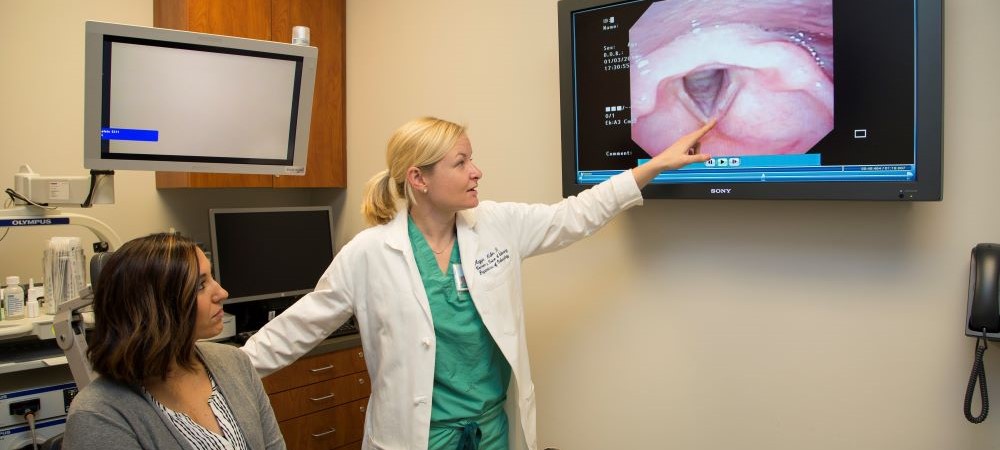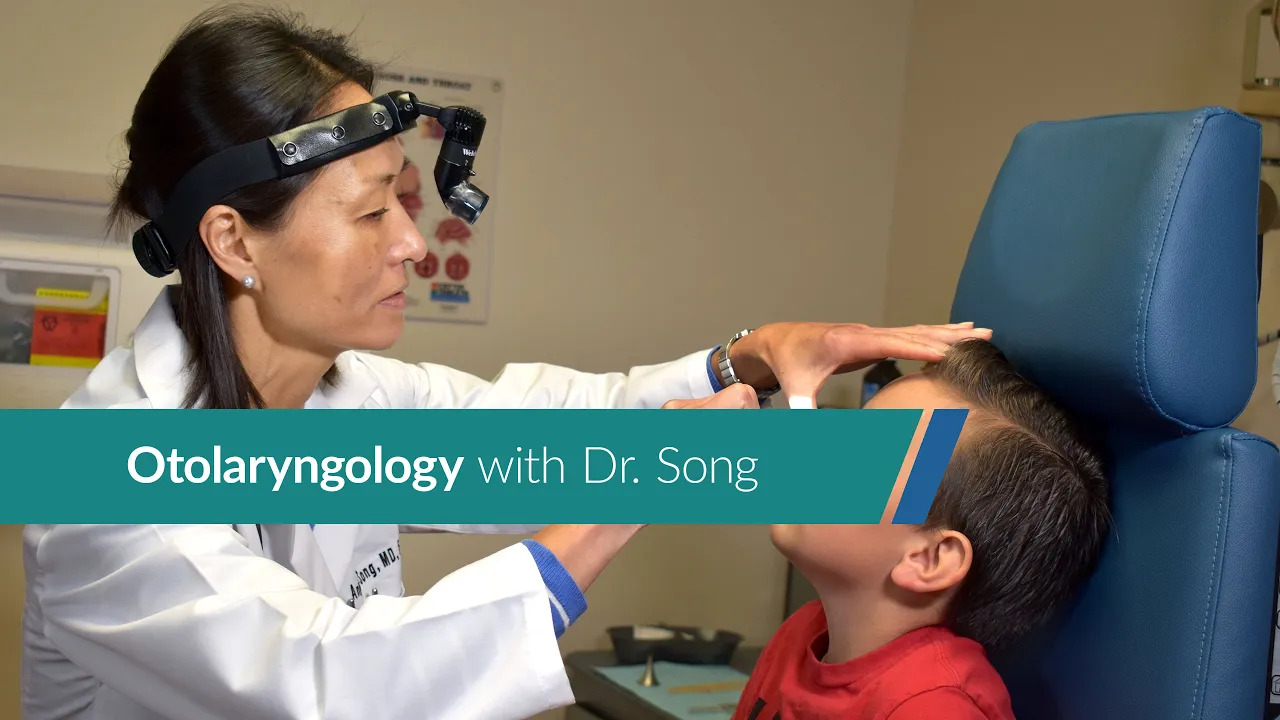How to Schedule a Hearing Test with a Certified Hearing Professional
How to Schedule a Hearing Test with a Certified Hearing Professional
Blog Article
Checking out the Area of Otolaryngology: What to Anticipate When You Speak With an ENT
Otolaryngology, typically referred to as ENT, encompasses the medical diagnosis and therapy of nose, throat, and ear conditions. For those experiencing associated concerns, seeking advice from an ENT professional can offer quality and alleviation. Understanding what to anticipate during such assessments is important for effective interaction and treatment. This summary will outline key facets of the ENT experience, consisting of common reasons for check outs and the processes associated with diagnosis and therapy.

Understanding Otolaryngology: A Review
Otolaryngology, frequently described as ENT (Nose, ear, and throat) medication, is a specialized branch of medication that concentrates on the diagnosis and therapy of problems affecting these vital areas of the body. This area encompasses a wide variety of disorders, including those pertaining to hearing, equilibrium, respiratory function, and speech. Otolaryngologists are trained to take care of both clinical and surgical treatments, using innovative strategies and technologies. Their knowledge prolongs past typical disorders, resolving concerns such as allergic reactions, sinus infections, and hearing loss. In addition, they play an important duty in the management of head and neck cancers, providing extensive treatment customized to specific person demands. On the whole, otolaryngology remains necessary for keeping wellness and lifestyle in damaged people.
Typical Reasons to See an ENT Specialist
Many people look for the know-how of an ENT expert for a variety of factors, showing the diverse nature of problems that impact the throat, ear, and nose. Typical issues consist of chronic sinus problems, which typically results in persistent nasal blockage and facial discomfort. Allergies and their linked signs and symptoms, such as sneezing and itching, also trigger sees to these specialists (Sinus). Hearing loss, whether abrupt or gradual, is an additional significant factor for examination. In addition, individuals may look for analysis for throat disorders, including persistent hoarseness or ingesting problems. Sleep apnea, characterized by cut off breathing throughout sleep, is frequently resolved by ENT professionals. Each of these problems highlights the value of specialized care in taking care of complex ENT-related health and wellness issues
Getting ready for Your ENT Appointment
When preparing for an ENT appointment, it is important to collect relevant information and consider any type of specific issues. Clients ought to put together a comprehensive case history, consisting of previous ear, nose, or throat concerns, surgical treatments, and current medications. Documenting signs-- such as intensity, frequency, and period-- can provide useful insights for the ENT professional. Furthermore, people ought to prepare a checklist of questions they want to ask, guaranteeing that all concerns are resolved throughout the visit. Bringing along any appropriate medical records or test outcomes can further help the ENT in recognizing the individual's condition. Clients must confirm their appointment information, consisting of area, time, and date, to lessen any type of last-minute complication. Appropriate preparation can boost the efficiency of the examination and result in better end results.
What to Expect Throughout the Appointment
As the examination begins, the person can expect to engage in a complete discussion with the ENT professional about their signs and symptoms and medical background. The expert will certainly ask about the period, frequency, and extent of signs such as hearing loss, nasal blockage, or sore throat. In addition, the client's previous clinical conditions, medicines, and any appropriate family background will be examined, aiding the professional in forming a full understanding of the client's health. The ENT may additionally inquire about lifestyle factors, such as direct exposure to toxic irritants or allergens. This open dialogue develops a structure for the examination, making sure that the client's issues are resolved and setting the phase for any essential examinations or referrals for treatment.
Analysis Examinations and Procedures in Otolaryngology
A range of analysis tests and treatments are essential in otolaryngology to precisely examine and identify conditions affecting the throat, nose, and ear. Usual examinations consist of audiometry, which determines hearing function, and tympanometry, evaluating center ear pressure. Nasal endoscopy permits visualization of the nasal flows and sinuses, while laryngoscopy analyzes the throat and singing cables. Imaging methods, such as CT scans and MRIs, supply comprehensive views of head and neck structures. Allergy screening might also be carried out to recognize triggers for sinus or respiratory system issues. These diagnostic devices allow ENT professionals to develop a thorough understanding of clients' problems, making sure tailored and efficient administration strategies. Appropriate diagnosis is essential for successful therapy end results in otolaryngology.
Treatment Alternatives Offered by ENT Specialists
ENT professionals use a selection of therapy choices customized to resolve details problems influencing the throat, nose, and ear. These treatments vary from traditional approaches, such as medication and way of life adjustments, to more invasive procedures. Allergic reactions might be managed with antihistamines or immunotherapy, while persistent sinus problems might call for nasal corticosteroids or sinus surgical treatment. For hearing loss, ENT specialists usually suggest listening device or medical treatments like cochlear implants. In cases of throat problems, options can consist of speech therapy or operations to eliminate blockages. Furthermore, they might supply advice for managing rest apnea, including the use of CPAP tools or medical interventions. In general, the goal is to improve patients' quality of life through individualized treatment and efficient treatment methods.
When to Look For Follow-Up Care With an ENT
When to look for follow-up treatment with an ENT expert is essential for handling continuous signs and symptoms or problems associated to nose, throat, and ear conditions, acknowledging. Clients ought to consider setting up a follow-up appointment if signs and symptoms linger in spite of initial therapy, such as chronic ear discomfort, nasal congestion, or throat discomfort. Changes in hearing, equilibrium concerns, or uncommon nasal discharge might additionally call for additional assessment. Additionally, if an individual experiences negative effects from recommended drugs or has undertaken an operation, follow-up care is necessary to keep track of recuperation and attend to any type of issues. Prompt appointments can guarantee effective administration of conditions, prevent potential issues, and supply tranquility of mind relating to one's health. Seeking follow-up treatment promotes positive health monitoring in otolaryngology.
Regularly Asked Concerns

What Qualifications Should I Look for in an ENT Professional?
When seeking an ENT professional, one need to try to find board accreditation, relevant experience, and solid patient evaluations. Furthermore, reliable interaction abilities and a compassionate strategy can greatly improve the total treatment experience.
Just how Do I Choose the Right ENT for My Demands?
Picking the ideal ENT specialist includes examining their certifications, experience, and individual reviews (Sinus). It is vital to consider their interaction design and approach to treatment, guaranteeing they line up with the person's certain wellness needs and preferences
Are There Any Kind Of Threats Linked With ENT Procedures?
The threats connected with ENT treatments might include infection, bleeding, anesthesia difficulties, and possible damages to bordering structures. Patients must talk about these dangers pop over here with their medical professional to comprehend private worries and warranty informed decisions.
How Can I Handle Anxiety Prior To My ENT Appointment?
To manage stress and anxiety prior to an appointment, individuals can practice deep breathing exercises, visualize favorable results, prepare questions ahead of time, and seek assistance from buddies or family, fostering a sense of reassurance and calmness.
What Should I Do if I Experience Adverse Effects From Treatment?
The person needs to immediately report them to their medical care company if side impacts from treatment take place. Changes to treatment or additional treatments might be necessary to guarantee security and efficiency in handling their condition - ENT. As the consultation starts, the individual can anticipate to involve in a detailed discussion with the ENT specialist concerning their signs and medical history. These diagnostic ent laser clinic devices enable ENT specialists to create an extensive understanding of clients' problems, making sure customized and reliable management plans. ENT specialists provide a range of treatment useful site alternatives tailored to attend to particular problems influencing the nose, throat, and ear. When seeking an ENT professional, one need to look for board certification, pertinent experience, and solid person evaluations. Selecting the ideal ENT professional entails reviewing their qualifications, experience, and patient testimonials
Report this page